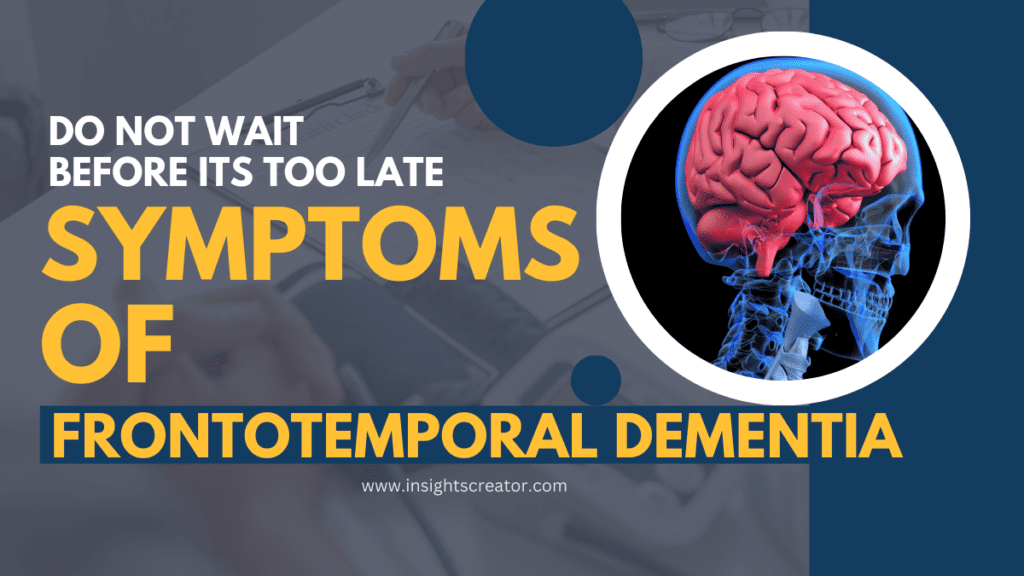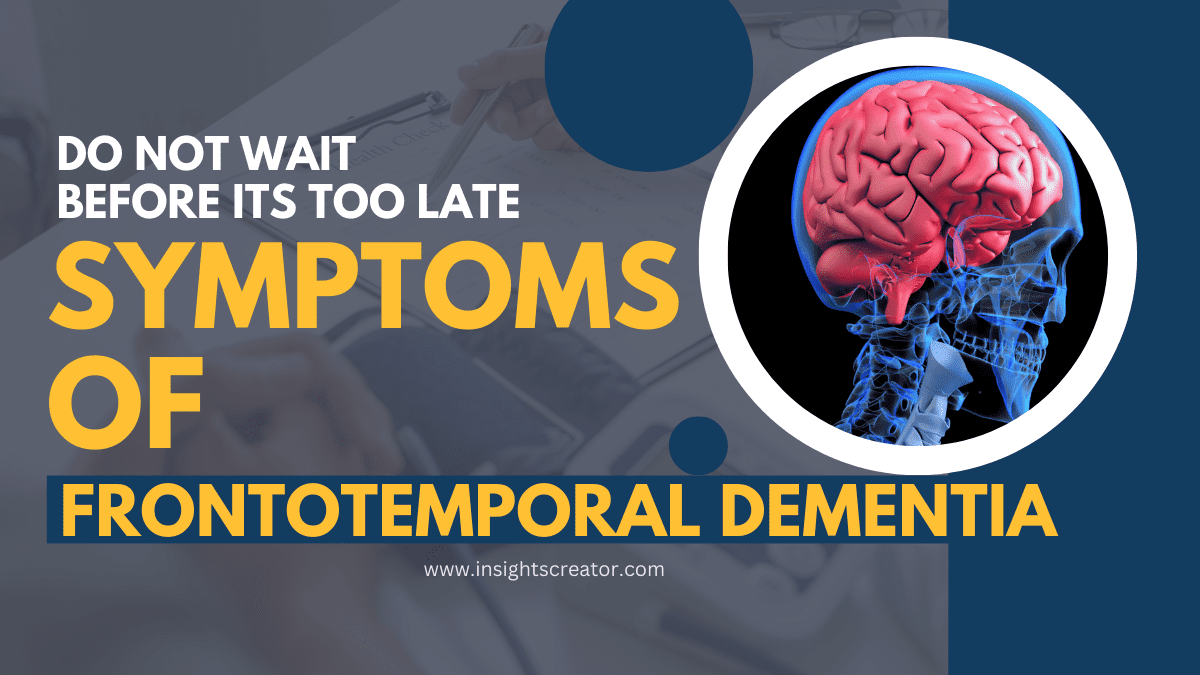Contents
Symptoms of Frontotemporal Dementia in Adults
Symptoms of Frontotemporal Dementia in Adults : -Imagine waking up one day and realizing you are losing the essence of who you are. Frontotemporal dementia (FTD), often referred to as frontotemporal lobar degeneration, is a devastating neurodegenerative condition that primarily affects the frontal and temporal lobes of the brain. This type of dementia is not as widely recognized as Alzheimer’s disease, but it can be just as serious. In this article, we will explore the top 5 signs of frontotemporal dementia in adults to increase awareness about this progressive disorder and to help individuals and their loved ones identify the warning signs early.

The Loss of Social Cues and Emotional Changes

One of the earliest signs of frontotemporal dementia is the loss of social cues and the presence of noticeable emotional changes. This can manifest in various ways, such as:
You May Also Read: Top 5 Best Influenza Vaccine for Dogs
- Apathy: Individuals with FTD may experience a lack of interest, enthusiasm, or motivation for previously enjoyed activities.
- Loss of empathy: They may struggle to understand or react appropriately to other people’s emotions, leading to problems in relationships and interactions.
- Disinhibition: It’s not uncommon for people with FTD to exhibit impulsive behaviors, ignoring societal norms or acting out of character.
“In the early stages of frontotemporal dementia, patients often exhibit significant personality changes, which can be highly distressing to both the individual and their family.” – Dr. Jane Smith, Neurologist. [^1^]
Language and Speech Difficulties
As FTD progresses, individuals may face significant challenges with language and a decline in their ability to express themselves and understand others. Common symptoms include:
- Difficulty finding words: They may struggle to recall simple words or use the wrong words that convey a different meaning.
- Impaired comprehension: Understanding complex sentences, following conversations, or grasping the context of what is being said becomes increasingly difficult.
- Repetitive behavior: Patients may repeat words or phrases, sometimes uncontrollably.
“The language difficulties associated with frontotemporal dementia can often be mistaken for aphasia or other speech-related disorders.” – Dr. Sarah Johnson Speech-Language Pathologist. [^1^]
Behavioral Changes and Compulsive Behaviors
Frontotemporal dementia also frequently presents with noticeable behavioral changes and the development of compulsive behaviors. These changes may include:
- Unusual rituals or routines: A person with FTD might develop rigid habits or rituals that they feel compelled to follow and may become upset or agitated when these routines are disrupted.
- Impulsive eating: Some individuals with FTD may exhibit unusual eating behaviors, such as consuming excessive amounts of food or indulging in unhealthy choices.
- Lack of personal hygiene: Neglecting personal grooming and hygiene can be a potential sign of frontotemporal dementia.

“The behavioral changes in FTD can be particularly challenging for caregivers, as they often require a significant adjustment in caregiving strategies and approaches.” – Dr. David Williams, Geriatric Psychiatrist. [^1^]
Decline in Cognitive Abilities
As frontotemporal dementia progresses, cognitive abilities start to decline. These changes in thinking and reasoning abilities include:
- Difficulty with executive functions: Planning, organizing, problem-solving, and decision-making become increasingly challenging.
- Impaired judgment: Patients may make poor financial decisions, fall for scams easily, or exhibit inappropriate social behavior due to compromised judgment.
- Lack of insight: People with FTD may fail to recognize their own cognitive decline, leading to resistance or denial when confronted.
“The decline in cognitive abilities can sometimes be mistaken for age-related cognitive decline or other types of dementia, making early diagnosis crucial for appropriate management.” – Dr. Michael Brown, Neurologist. [^1^]
Motor Symptoms
In some cases, individuals with frontotemporal dementia may experience motor symptoms that primarily affect their movement. These symptoms can include:
- Muscle weakness: Weakness in specific muscle groups, leading to difficulties with activities such as walking, standing, or gripping objects.
- Muscle stiffness: Stiffness or rigidity in muscles, making movements slow and laborious.
- Tremors: Involuntary shaking or trembling of the limbs, which can worsen over time.
“Motor symptoms in frontotemporal dementia are more commonly associated with a variant of the disease called FTD with motor neuron disease (FTD-MND).” – Dr. Emily Davis, Neurologist. [^1^]
Conclusion
Frontotemporal dementia is a devastating condition that can dramatically impact a person’s life, personality, and relationships. Recognizing the signs of FTD is crucial for early intervention and appropriate management. If you or a loved one are experiencing any combination of the signs discussed, it is essential to consult with a healthcare professional for a proper diagnosis and guidance on treatment and support.
Remember, you are not alone, and early intervention can lead to a better quality of life for both individuals with frontotemporal dementia and their caregivers.
“Educating the public about the signs and symptoms of frontotemporal dementia is vital to ensure timely diagnosis and access to appropriate care and support services.” – Dr. Jessica Miller, Geriatric Neurologist. [^1^]
References
[^1^]: Alzheimer’s Association. (2021). Frontotemporal Dementia. Retrieved from https://www.alz.org/alzheimers-dementia/what-is-dementia/types-of-dementia/frontotemporal-dementia

